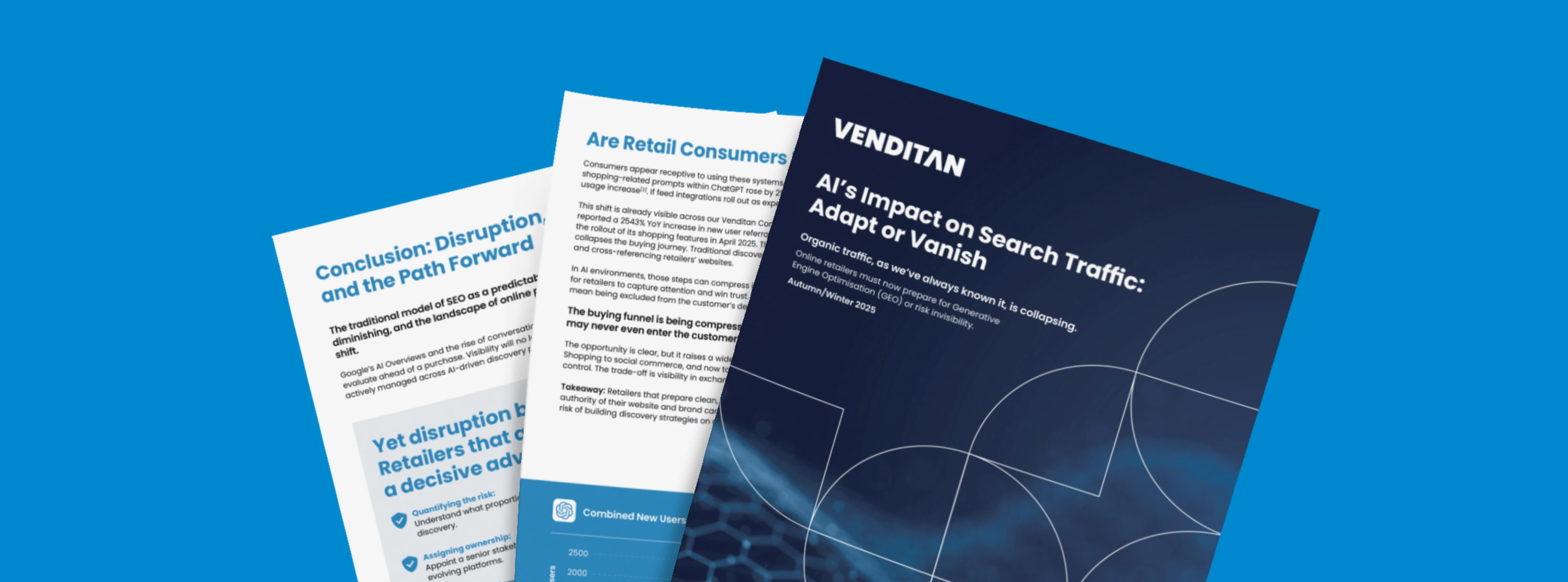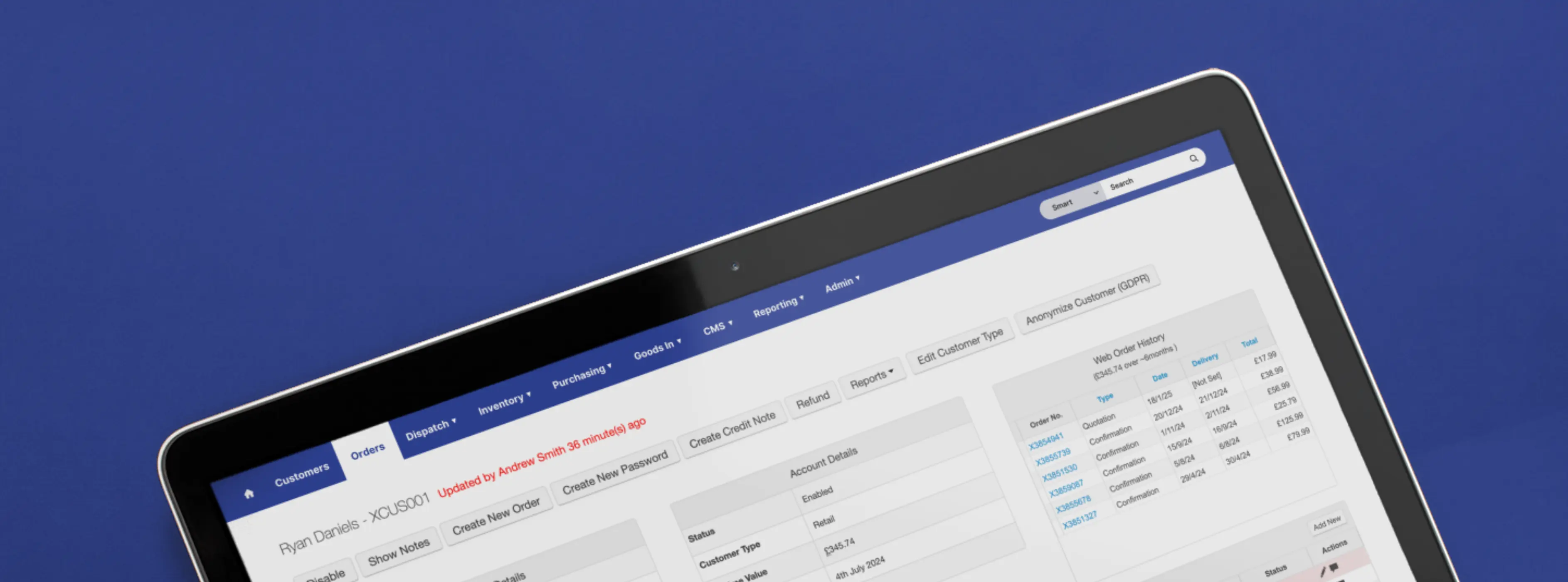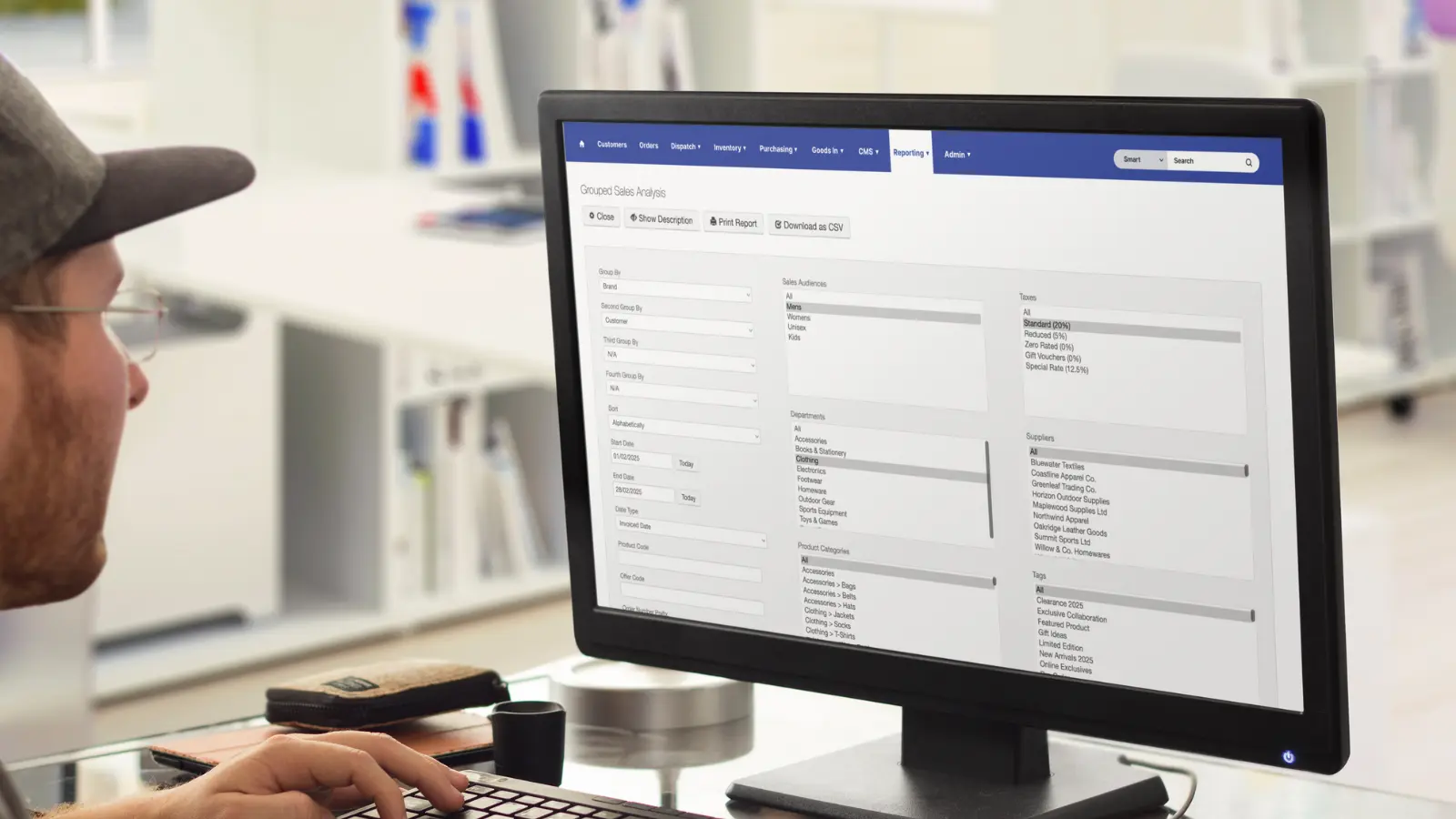Replatforming is sometimes essential to enable an eCommerce business to grow
As customer expectations increase, retailers must keep up with trends in website functionality and the experience they provide. The prospect of replatforming can be daunting but with detailed planning and preparation the majority of issues can be avoided – there is no reason why retailers who’ve outgrown their current platform shouldn’t go ahead and make the move.
Here are three considerations for retailers who are looking to take the next step and replatform.
1. Data migration
Failure to migrate the correct customer data can have a huge impact on an existing customer’s experience.
As a minimum, customer account details should be migrated to the new system with the exception of passwords, which should be updated for security. Retailers should alert their customers about any changes to their website functionality, highlighting any enhanced features or customer-facing benefits such as faster, cheaper delivery services. You also need to make sure that customers are provided with a seamless way to update their passwords.
Ideally customer order histories should be migrated so that the new platform has knowledge of previous purchases. Often this is not the case and so refunds and exchanges are manually managed within the old system for a period of time. If customer order history is being used for any marketing or loyalty programs then the migration of this data should be specified as a requirement.
2. SEO
The revenue generated from organic sessions often accounts for a huge portion of a retailer’s overall online income. This means that SEO should be one of the key considerations when deciding to replatform. The last thing you want is to spend thousands of pounds replatforming if you then see your sales drop off a cliff. You will hear many vendors saying that their platform is “SEO friendly”, however this means nothing without some manual considerations and a certain amount of custom work.
If, like most retailers, your organic revenue is critical to your business, make sure that you or your new provider makes a full list of SEO considerations and that these are all being addressed. If your URLs are going to be changing with the migration it’s important that you have a thorough redirect strategy in place. This should include the migration of any existing redirects stored in your live database.
A migration to a new platform is also a good time to review your meta content and make sure that it’s optimised for the new/migrated content. Often the data used to build product page meta content is pulled from product data within your installation so make sure you know which fields need to be optimised for search engines.
3. A single ecosystem
Customers interact with your business across multiple touch points, so integration is key. Your eCommerce platform should give you a single view of all the data your retail business owns. It should be the master of all customer, inventory and order information. Only by having a full understanding of how users are interacting with your business will you be able to make the data-driven decisions required to grow revenue. When replatforming, make sure that you map out your business’s eco-system to ensure all data is flowing back into your eCommerce platform. This will allow you to provide a frictionless shopping experience whether your customers are shopping with you in-store, on your website or on a third-party marketplace.
Replatforming is a complex process that requires agility and strong project management. Core business processes and requirements need carefully mapping out to ensure the new platform meets your business goals.
Final thoughts
If you’ve outgrown the capabilities of your current platform and would like to find out if the Venditan Commerce Platform is the right eCommerce platform for you, get in touch.
Our recent posts
Keep up to date with the latest news and insight from the team at Venditan
-p-2600.webp)










.webp)

